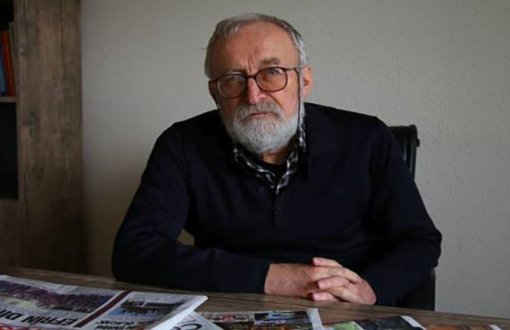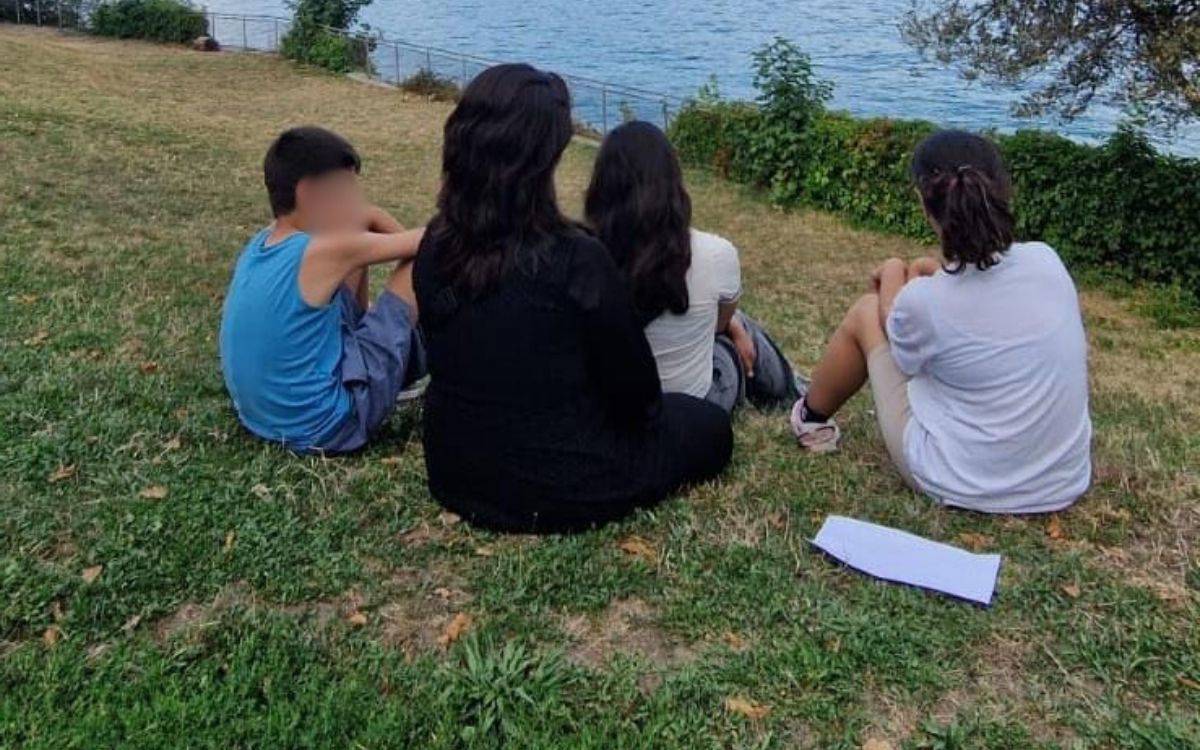Click to read the article in Turkish
There were 67 lawsuits opened against him, some of which could possibly conclude with prison terms. His friends and loved ones suggested to him to go abroad. He rejected.
Aykol was sent to Sincan Prison in the capital Ankara last night (July 11) after his prison term of 3 years and 9 months was approved. He was being tried in the case Özgür Gündem, a daily newspaper which he was the editor-in-chief of. Özgür Gündem was shut down in 2016 due to a statutory decree.
His loved ones told bianet about Hüseyin Aykol.
"A one-man communication faculty"
.jpg)
Sedat Yılmaz, a fellow journalist, says he would get up early and prepare his program for the day.
"Hüseyin is like a one-man communication faculty. In the Kurdish media he has been working in for 30 years, he made many children of the Kurdish people and other peoples journalists.
"When he was doing all these, he never surrendered himself and his identity. He always embraced the identity of a revolutionary journalist. We learned many things from him."
"He never thought about going to a different country"
.jpg)
Nuray Çevirmen, the wife of Aykol and a human rights defender, says, "He would strive to make this country a more livable place."
"To me, the Kurdish media was the place he found himself. He wouldn't be happy if he was in another place. He was connected with love. He wasn't alongside Kurdish people, he was among them.
"He never thought about going to a different country because of the sentences he received, he didn't find doing that ethical. While thousands of people are in prison, hundreds of people from the press are in prison, he didn't find it morally true to be in another country, and this is the right behavior.
"He had many sensitivities. He gets deeply saddened for every bad thing that happens and reflects this to his life. If it is otherwise, he wouldn't be a press laborer who is loved this much."
"A revolutionary personality"
.jpg)
Eren Keskin, the chairperson of the Human Rights Association (İHD), says that he was a co-editor-in-chief at the Özgür Gündem, in a campaign to support the newspaper.
"We would first be friends, then friends for a cause, I can say. My 17-year prison term could be approved at any moment. Then I will go to prison like Hüseyin.
"I always witnessed his revolutionary personality. He strived to make this region nicer. But he was arrested. I don't understand. How do they arrest Hüseyin when they release a murderer like Veli Küçük?
"I am unable to understand this. I don't accept this sentence against this person who committed his whole life to peoples, to journalism."
About Hüseyin AykolBorn in 1952, Hüseyin Aykol studied at the Medical School of Ankara University for three years and at the Faculty of Political Science at the same university for four years. Before the military coup on September 12, 1980, he worked as a translator and editor for the Ser Publishing and became a member of the Writers Union of Turkey (TYS). Published in around 40 countries, Socialism: Theory and Practice journal's Turkey edition was published by Hüseyin Aykol. Serving almost 10 years in prison in the post-coup period, he returned to journalism and publishing. In the last 20 years, he has worked for a series of newspapers, including Özgür Ülke, Özgür Gündem, Özgürlükçü Demokrasi and Yeni Yaşam. |
(EMK/VK)















